Garden Tips For Early Spring
I’m sharing my garden tips for early Spring today in hopes you’ll get excited about working in your yard or garden. There is something about being outside and working in the earth with the sun coming up. Here’s the deal, some of us have acres of land, a few of us have tiny lots, and some may have a balcony or a porch. We need to make do with what we have, right?
I feel an urgency to grow my own food, more food than I have produced in the last few years. All we have to do is turn on the TV and listen to the foods being recalled and skip salads for weeks, and in some cases, months. Are you like me, when you look at lettuce at the store and think “is this going to make me sick?” Or, I wonder where this was grown?
Growing our own food also makes us more self-sufficient. The world has some crazy stuff going on and I want to be prepared to save seeds, grow more food, and preserve more food than I have recently. If you can teach others to grow their own food, I want to encourage you to do that if you aren’t doing it now.
Hard times are coming, so please get your life in order. We don’t need to be afraid when we are prepared, my friends. I am not a doomsday prepper, but I can see what’s going on around us and you can too.
Garden Tips
Know Your Zone
We’ve talked about your hardiness zone before, but let me post it again. If we know our zone, we will have better results with the seeds or plants we decide to purchase for our neighborhood. Here is my favorite Zone Chart because all you have to do is enter your zip code. USDA Hardiness Zone
Another critical thing to look for is the last spring frost and the first fall frost where we live. Then we can sow seeds, plant seedlings, and pray Mother Nature doesn’t throw a surprise by way of extreme weather conditions and temperatures.
This is where I buy my garden seeds: SeedsNow
Tidy Up Garden Area
It’s so fun to walk around my yard after the cold winter months to check things out. I put on my garden gloves and grab a bucket to remove any rubbish that’s blown into the yard. This is when I can see if some of my raised gardens need more soil and use my small pitchfork to turn over the soil. I remove any plants or veggies that may have popped up when turning the soil. Then I rake it smooth.
Clean Your GreenHouse
This is a great time to wash down your greenhouse shelving and remove any weeds that have popped up over the winter months in the flooring. Scrub the tables and shelving so you are ready to plant your seeds. If you have already planted some seeds, sprinkle them with water and plant more seeds if it’s the right time for your area. Check your garden book to see what to plant and what not to plant based on last year’s garden. If you don’t have a garden book, no worries. I just use a notebook with tabs and write down what works in different areas of my yard based on sunshine, water lines, and the length of the growing season. I also write down the number of soil amendments I have added each year.
Order Seeds
It’s not too late to order seeds for your garden. I highly recommend a seed container to organize your seeds in alphabetical order. You can use mason jars, airtight containers, or vegetable storage containers. I bought these so I could alphabetize my seeds. I had to buy two boxes to hold all of mine. These will last my lifetime, I love them! Seed Boxes
Please purchase Heirloom/Organic seeds when possible. My seeds have now started to sprout and I’m waiting for the soil to get warm enough so I can plant my seedlings. Here again, this is where I buy my garden seeds: SeedsNow
Heirloom/Organic/Non-GMO Seeds
Here’s the deal, if you start with quality seeds or plants you can produce so much more in your garden. If you want to remember the term heirloom seeds, think pioneer. These seeds have been around for years and years. You can save the seeds and use them each growing season during the
Open-pollinated Seeds
These seeds are produced by allowing a large number of plants to freely cross-pollinate for several generations. Only similar plants are allowed to contribute pollen and make seeds for the next generation. The offspring that do not conform to the desired traits are culled before they can contribute pollen. These are the best seeds!
Hybrid Seeds
These seeds are produced by crossing two open-pollinated varieties. The parent types are generally highly inbred, so they will express their genetic traits uniformly. Hybrids tend to be more vigorous than open-pollinated varieties (known as hybrid vigor). You can save seeds from hybrid plants, but because the parent plants are no longer inbred, their offspring may display a wide variety of genetic traits and the resulting crop may not be uniform.
Sow Seeds
You can still start some seeds indoors, or if your ground is warm enough, you can plant some of them outside. I just planted some radishes, lettuce, and spinach outside. I had to wait for the soil to warm up and for the rain to stop long enough to prep the soil and plant the seeds. I’m hoping to enclose my raised garden beds with some greenhouse-type construction built around them. I hope to take pictures soon and keep you posted on how it works.
Below is how I started my seeds indoors. I bought the seed pods from SeedsNow. I put my seeds in a 9 x 13-inch cookie sheet/pan, and then you basically cover the “pods” with water to help them germinate. They look like a 50-cent piece. Once you cover them with the water they fill up with the water to look like the ones shown below. Then you put your seeds in them and cover them with a little soil. I use a spray bottle to keep them moist, but not saturated. I do not use lights, I put them by my front window which has a lot of light. Be sure and use popsicle sticks or something similar to label the seeds you plant. SeedsNow
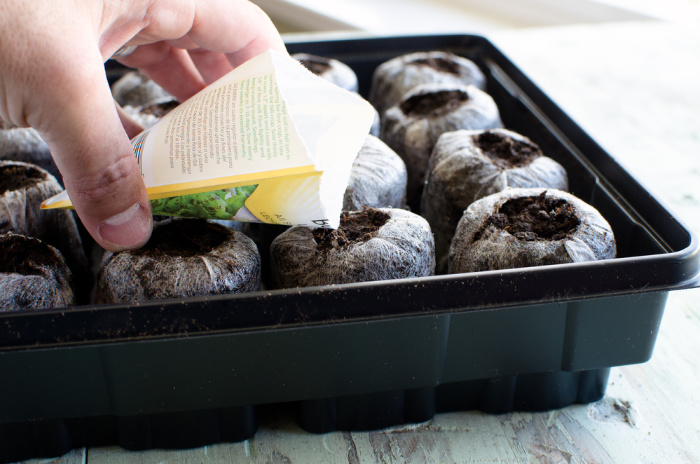
Use Pots or Garden Bags
You can plant so many vegetables in pots or garden bags. One of my friends has used these garden bags for years: Garden Bags
I’ve had really good luck growing spinach, potatoes, and lettuce in pots that are 18 inches tall and 18 inches in diameter. Just make sure they have holes in the bottom to drain the excess water. If you have a balcony or porch you may be able to grow vegetables there if you have enough sunshine.
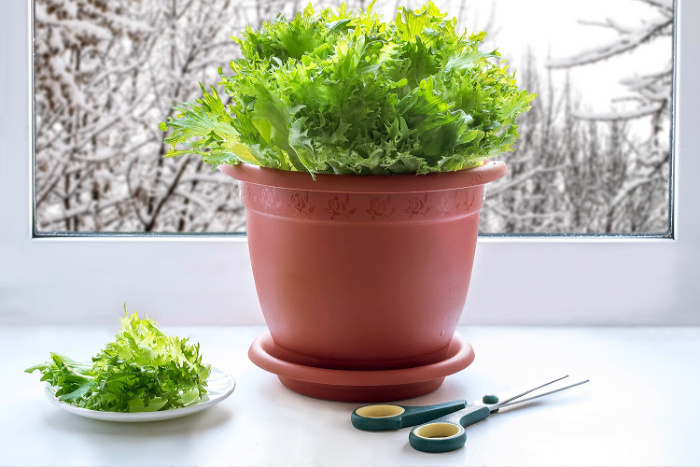
Amend Soil If Needed
Unco Industries Wiggle Worm Soil Builder Earthworm Castings Organic Fertilizer, 15-Pound
Miracle-Gro Nature’s Care Organic Bone Meal, 3 lb.
Espoma VM8 8-Quart Organic Vermiculite
Clean and Sharpen Garden Tools
If you have some garden tools, be sure and keep them rust-free by cleaning them after use. Keep them dry and sharpen them as needed. I love a sharp shovel when I need to dig holes.
Check For Garden Gloves
I have to work with gloves in my garden, it’s a habit. I had a neighbor get bitten by a brown recluse and I never want to go through what she did. So I always use gloves when pulling weeds or planting vegetables or flowers. Please be safe when working in the soil, it’s not worth getting stung or bitten. Please check for after-summer sales on garden supplies. That’s’ when I pick up six or eight pairs of gloves that are washable at 75% off end-of-season prices.
Remove Weeds In The Yard
There is nothing better than a weed-free yard, right? It keeps the neighborhood looking good and your neighbors happy. Here in the desert, we spray to keep the weeds down with a liquid spray because the granules do not work unless you have a lot of rain. It sure beats pulling thousands of weeds.
Add Some Mulch
Mulch helps keep the weeds clear from the vegetable plants after planting. We want the nutrients to go into the plants rather than the weeds. You can watch for insects or diseases if you keep the weeds away from the vegetables as well.
Check Hoses/Hand Sprayers
Be sure and check your hoses for leaks or broken hand sprayers. Repair or replace your hoses. Check for sales on hand sprayers. Replace the washers if you need to.
Garden Hoops by Kathie M.
I’m so excited that Kathie sent me these pictures and the supply list as well. This is exactly what we all need. Thank you, Kathie!!! I love these pictures!!
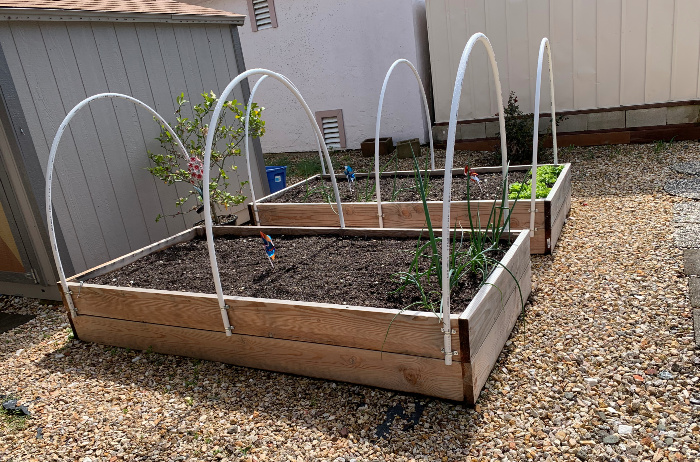
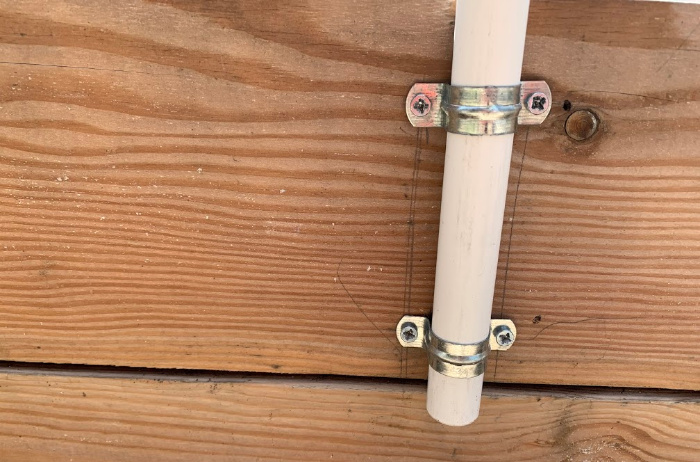
We bought PVC pipe (3/4” x 10’ ea.), then secured them with the brackets shown in the picture. We have plastic sheeting ready to cover both beds (ours are 8’ x 4’). We’ll do that about a week before we plant in order to give it time to heat up the soil.
Cost: PVC x 6 = $17.10 ($2.85 ea.),
Brackets = approx. $12.00,
Plastic Sheeting = $9.99 (100’ x 25’), and then the most expensive item:
Garden clips to hold the plastic on: www.territorialseeds(.com)
Final Word
I hope today gets you excited to start a garden and gets you fired up to go plant more seeds or plants in the garden you have. Please pass these garden tips on to your family and friends so they can grow more of their own food. Let’s try and be more self-reliant now because in our hearts we know we need to be. May God bless this world.

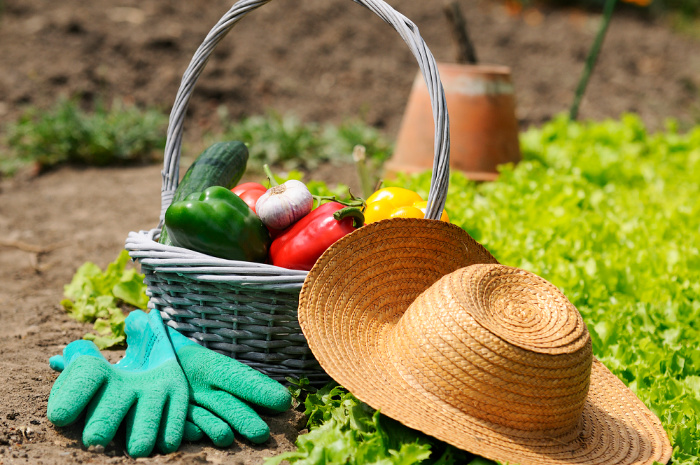


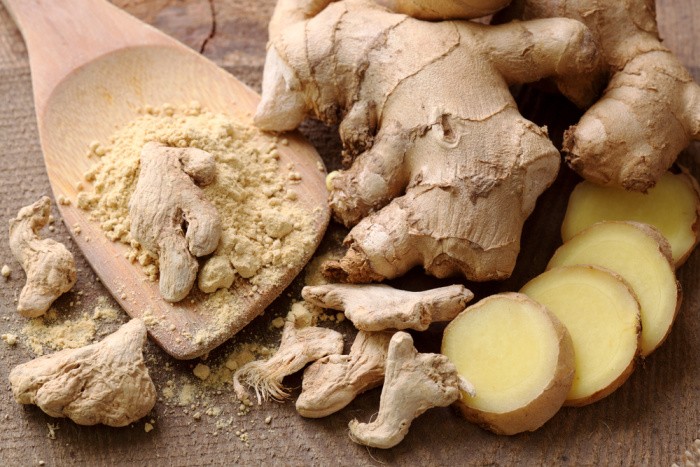
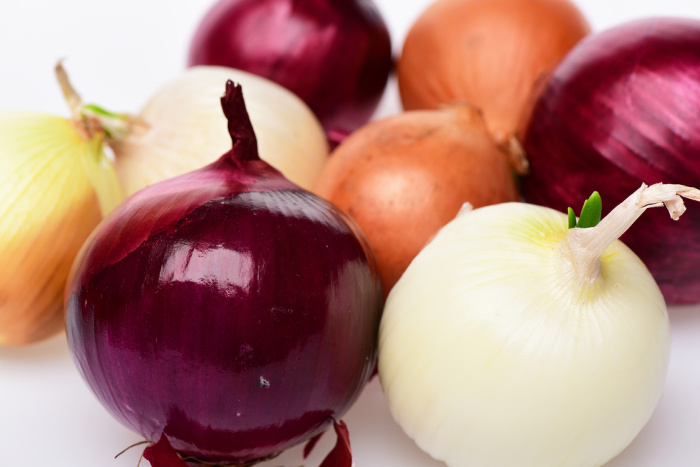
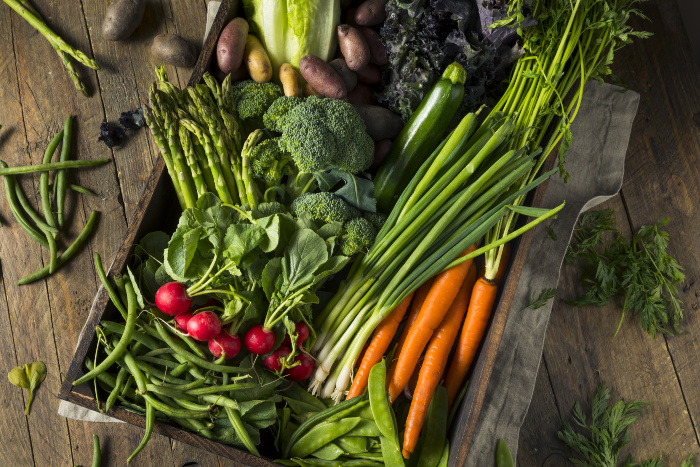
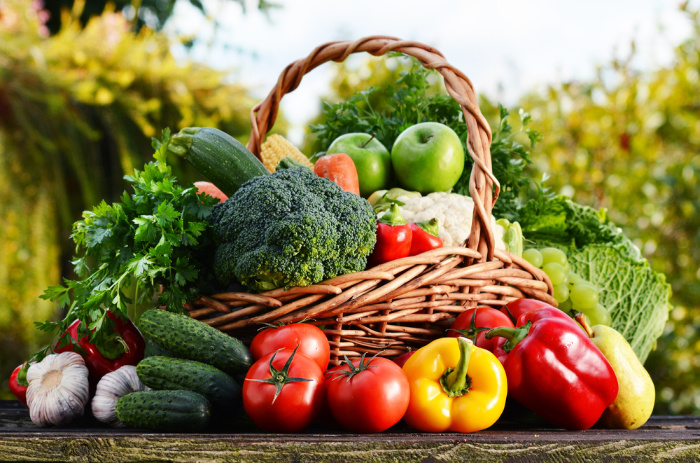
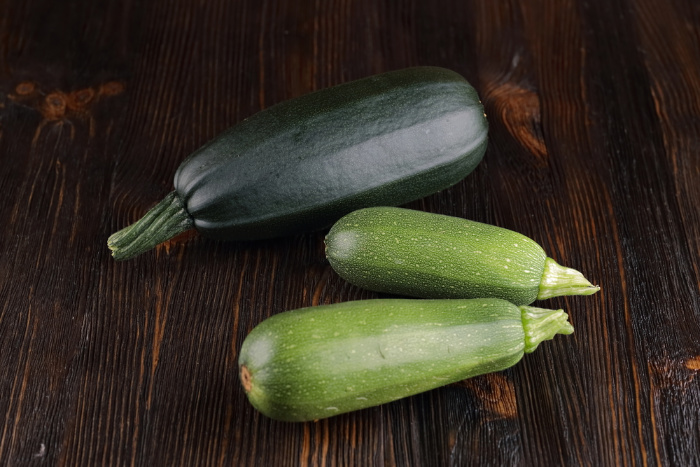
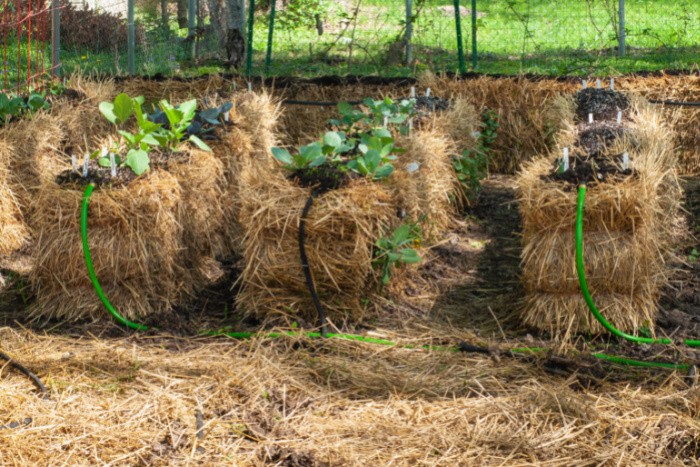
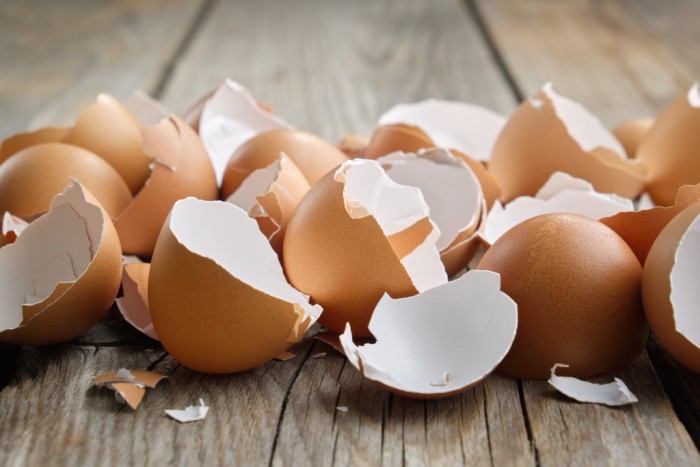
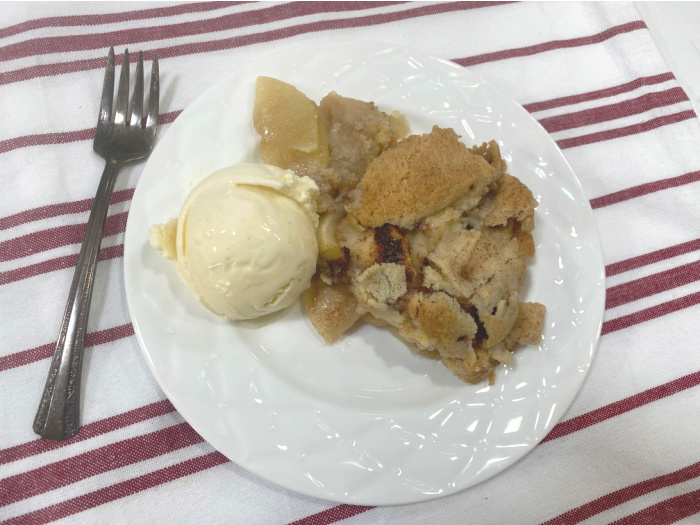
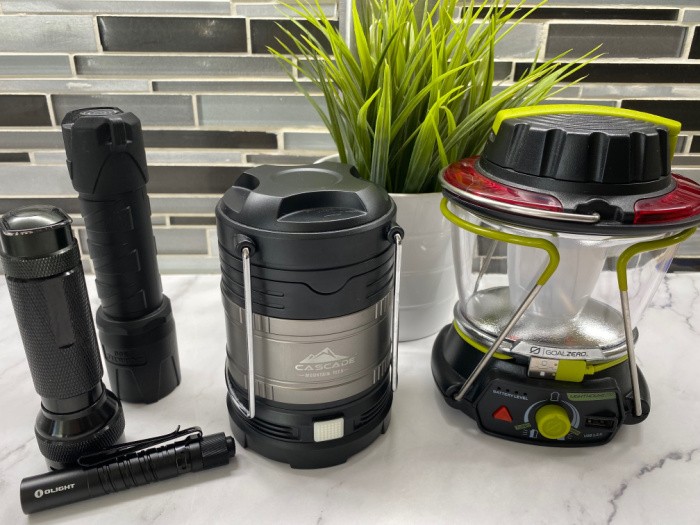
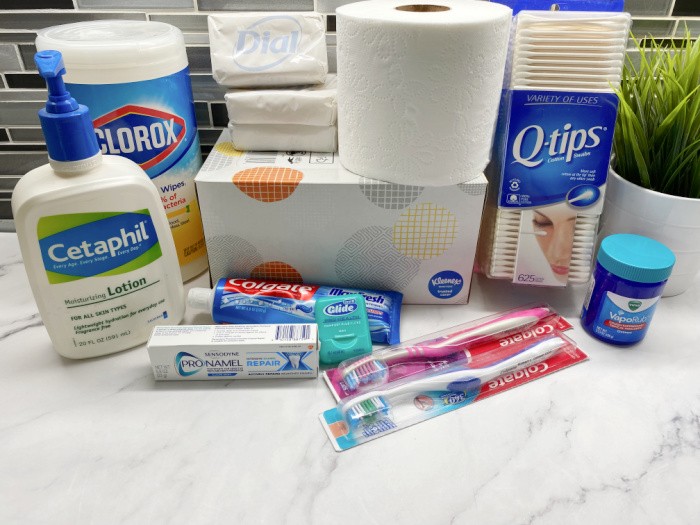
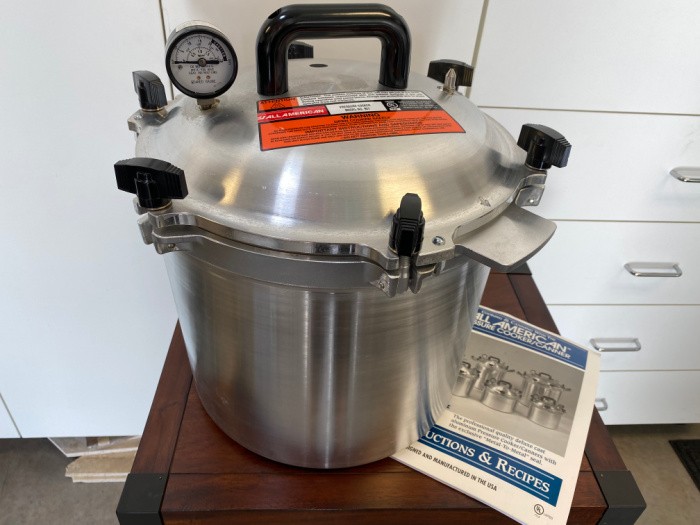
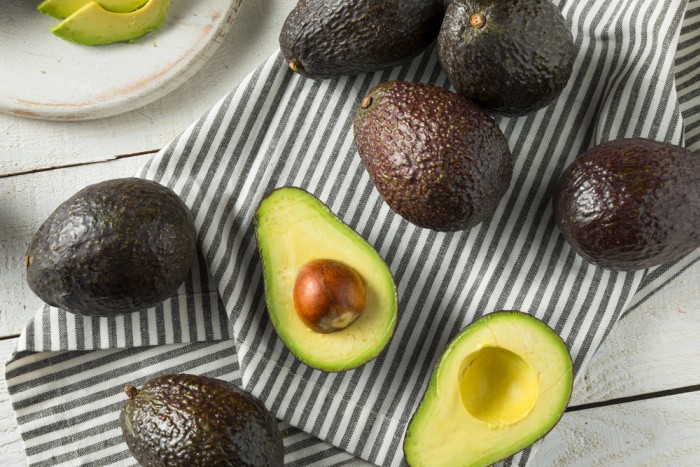
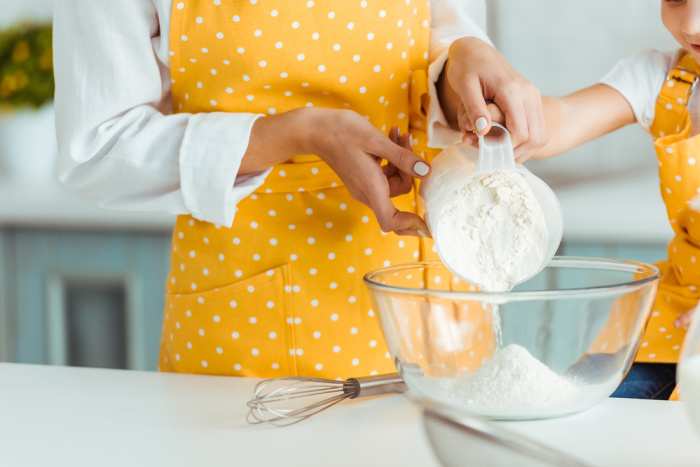
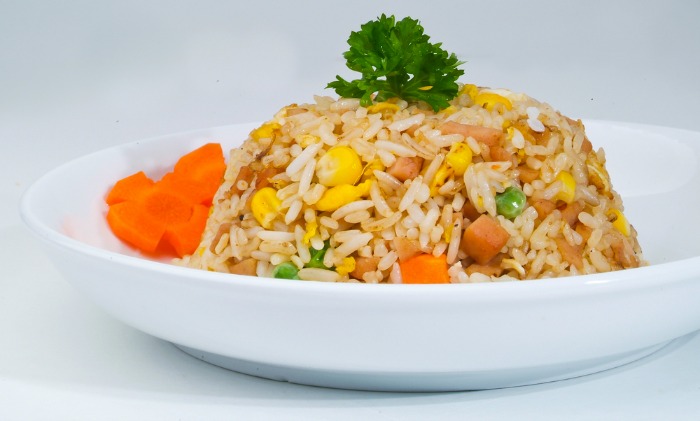
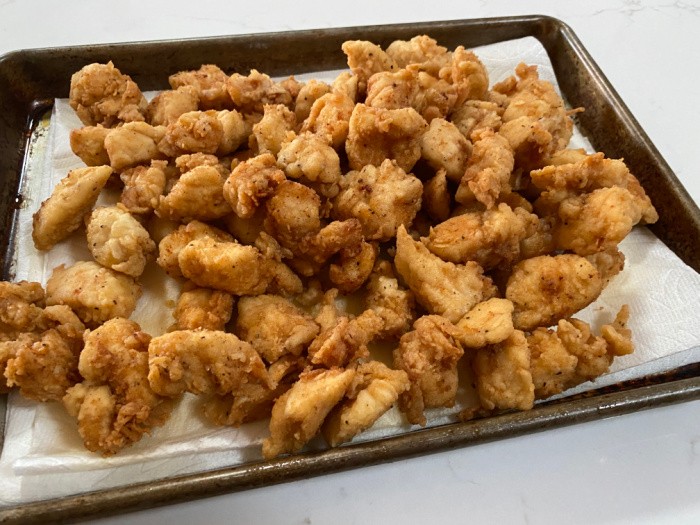
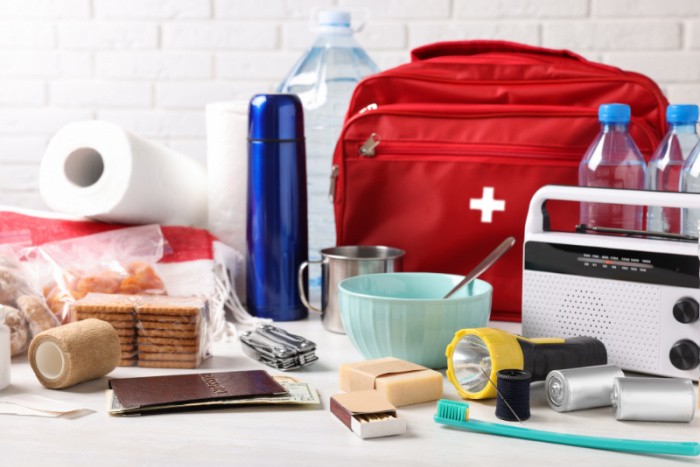
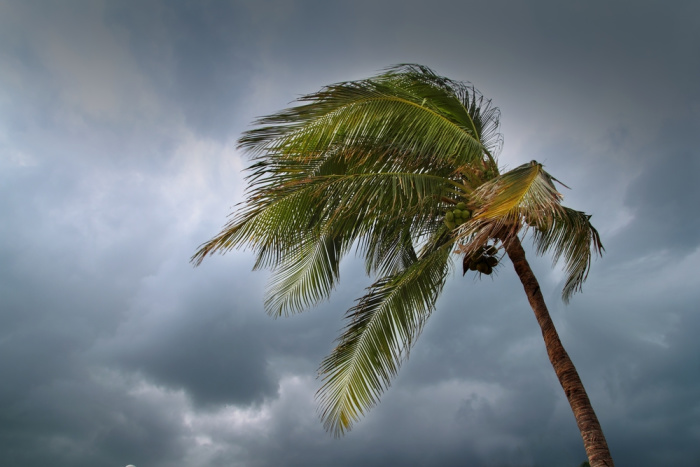
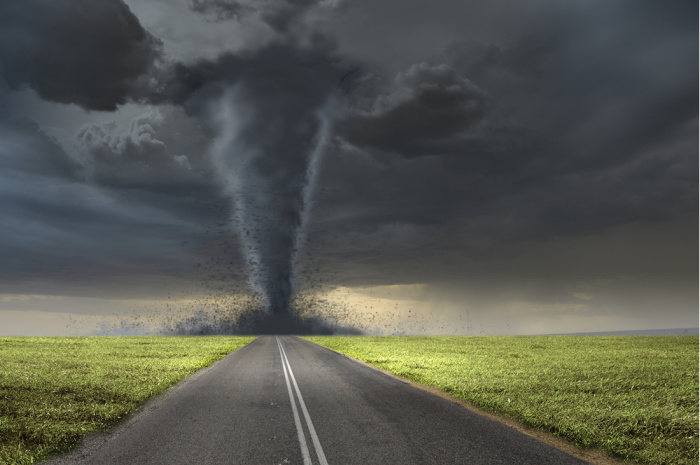


Linda, I love your posts! Here in NW Florida (zone 8-9) I planted asparagus crowns, onion sets, garlic and potatoes in February. All are doing well.
I gifted myself an apple tree at the same time. I chose a self pollinated Gala; it’s beginning to blossom and set fruit! I am excited by the possibility of getting my own apples!
I am transplanting fig cuttings and elderberry starts this year. I had great results with adding about 1/4 cup of earthworm castings to a 5 gallon bucket of water and letting the cuttings soak overnight. I sprinkle a little more of the castings in each hole, plant the cutting, fill it back in and keep it watered daily for the first week, then gradually go to once a week watering until the cuttings get established.
I hope to get the tomatoes, peppers, eggplants , squash and cukes seedlings in the ground next week. I will have spinach and radishes in containers just outside of the backdoor for until hot weather hits.
Thank you again!
Hi BDN, oh my gosh, I love hearing what you are planting or have planted!!! I love Gala apples, that is so fun to have an apple tree. Isn’t it so fun to plant seeds and harvest our own food?? Thanks for making my day! Linda
I find it great that you suggested that a homeowner should add soil to their pots or raised garden beds in order to prepare their garden during spring. Aside from these, one can also hire a local landscaper to have it inspected during this time of year too. Doing this will help them get ideas on whether they need to have its irrigation system upgraded or repaired. Doing this will help ensure the health of all plants grown this year.
Hi Tim, great comment! I would love a landscaper to check my soil!! Linda